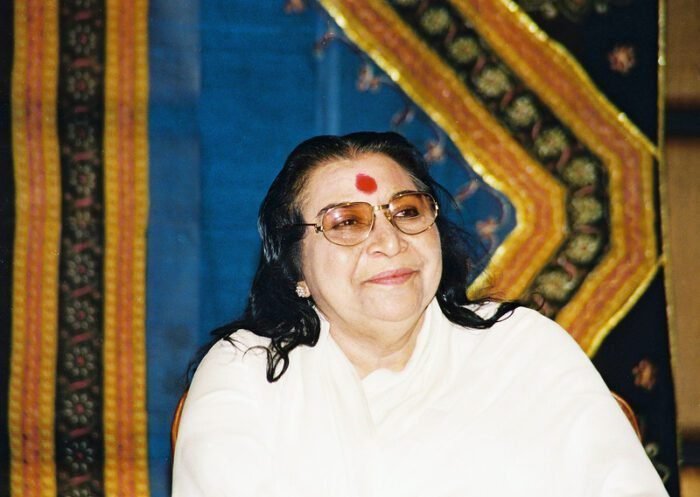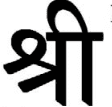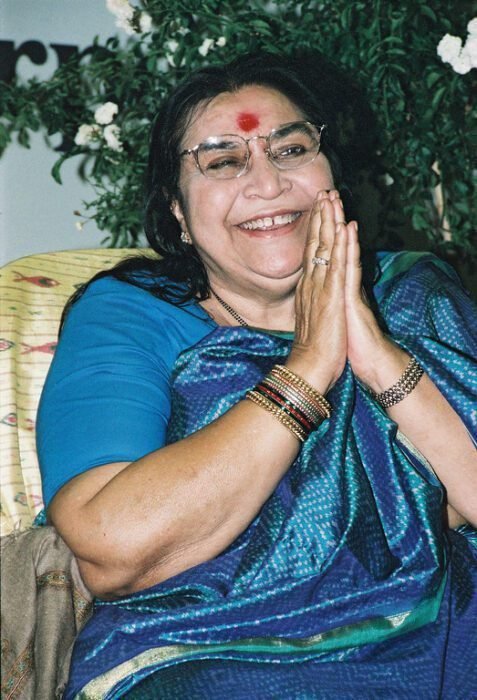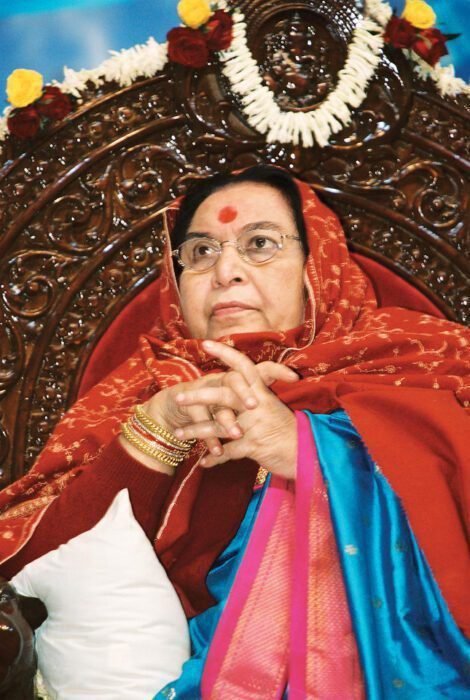Shri is the most sacred and auspicious bija Mantras . It is glorious
and uplifting being the name of the Supreme Goddess Herself. Her
Yantra –sacred diagram’ is the Shri Chakra and Her mantra
knowledge and worship is called Shri Vidya .
Bīja mantras have power but, generally, not specific meaning as
words. As well as the fifty letters of the alphabet, there are bīja
mantras for the elements and deities of the chakras
‘ Bîja mantra means the Vaikharî –‘utterance’. Vaikharî is the
power of speaking. This power of speaking is made into
mantras by the people who have the power of realization ‘
So the first step is to say the bîja mantra and then to say
the different mantras of the different chakras

Shri Mataji’s name starts with Shrim , as do the first three names of the Lalita Sahasranama (LSN) – ‘Thousand Names of the Playful Goddess Shri Mataji Shri-mahā-rajni, Shrī-mat-siṁh asan eshwari .
Shrī is the bīja of the Heart and Sahasrara and confers a sense of
expansion, love and radiant glory in these areas.
Shri, meaning splendour, light, radiance, glory, beauty, grace, prosperity, royal dignity’, refers to Shri Lakshmi, Mahalakṣhmī or
Shri Durga and denotes ‘prosperity, well-being’.
Many Devi mantras incorporate Śhrīm such as:
Om Hrīm Shrīm Krīm Parameśhwarayai svāhā Om Āīm Hrīm Śhrīm namah
Śhrīṁ is the sacred sixteenth syllable which creates the sixteen syllable mantra . This is one of the three main forms of worship of the Goddess. The other two are reciting the Lalitā Sahasranāma – Thousand Names’
and worshipping the Shri Chakra
In Devabagari writing ” Shri ” Has four parts

- The loop is a condensed form of ‘ sh’
- The diagonal line means ‘ r’ comes after ‘ sh ‘
- The vertical line is in almost every letter ( short ‘ a’ )
- The extra line with a loop on top coming after the consonant means a long ” i’ ” . If it came before the letter it would mean a short ” i”.
OTHER BIJA MANTRAS OF THE GODDESS
One could say that all sounds are bījas of the Goddess in one aspect
or another. These are a few bījas not mentioned elsewhere.
Sauḥ :
In the worship of the Shrī Chakra ‘Aim Klīm Sauḥ’ is used in
the outer levels known as the Tripura-sundarī mantra (‘Goddess
who is the beauty of the Three Worlds’). it is is used at the centre point (Bindu).
Sauḥ (सौः) is known as parābīja, hṛidayabīja or amṛutabīja, and is
associated with Lord Śhiva and the heart.
Bija Mantras of Deities addressed in the Kuñjika Stotram which are mainly aspects of the Goddess

Aīm Vāg-bhava –‘speech’ (Brahma/Saraswati)
Bhram Bhairava
Dam Vishnu
Dum/Dūm Durgā
Dram Dattātreya
Dham Kubera (Dhanya –‘wealth’)
Drīm Kinkini –‘sound of bells’, dispelling negativity
Gam Gaṇeśha
Glaum Gaṇeśha
Hram Hanumān
Hraum Śhiva
Hraim Mahāpātaka-nāśhinī –‘destroying sins’ (Durgā)
Hrīm Māyā – Mahāmāyā. Bhuvaneshwarī –‘Mistress of the
(three) worlds’
Hrūm Kālarātri –‘dark night’ (Durgā)
Hum (‘hoom’ –short) Kavach –‘armour, protection’. Agni –‘fire’
Hūm (‘hoom’ -long) Mahākāla –‘destructive power of Shiva’.
Works on the Heart. The Hindi affirmation Shri Mataji
used for the heart is: ’Meñ* Ātmā hūm’ – ‘I am the
Spirit’. This is a powerful mantra for the Left Heart. (*ñ
is a nasalisation and meñ is like ‘may’ but nasalised)
Krīm Mahākālī (dwelling in cremation ground)
Klīm Kāma –‘desire, love’. God of Love (deluding). Mahākālī
Krom Krodhīśha –‘controller of anger’ (Kārttikeya)
Krūm Kārttikeya (Kumāra)
Phat (pronounced ‘P’hut’) Pralaya –‘final dissolution’ (Sadāśhiva)
Phraum (P’hraum) Hanumān
Sauḥ Heart. Nirvāṇa dīkshā –‘initiation for liberation’.
Śhrīm Lakshmī. Mahālakshmī.
Swāhā Vahni-jayā –‘victory of fire’ (havan).
Bija Mantras of Energy

Om – pranic (life-force) energy
Aim – energy of sound
Hrīm – solar energy
Shrīm – lunar energy
Krīm – electric energy
Klīm – magnetic energy
Hūm – power of fire
Hlīm – power to stop
Strīm – power to stabilize
Trīm – power to transcend







